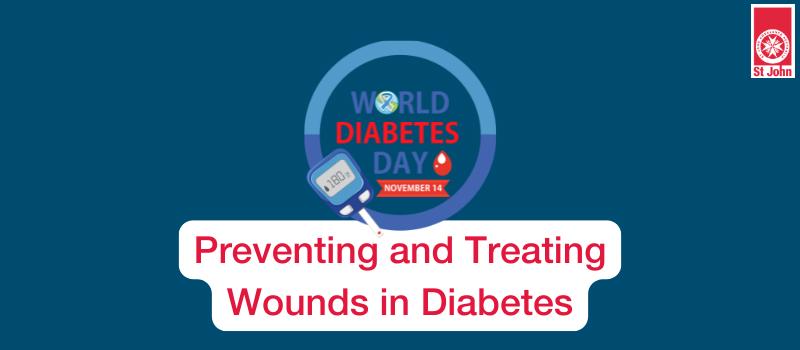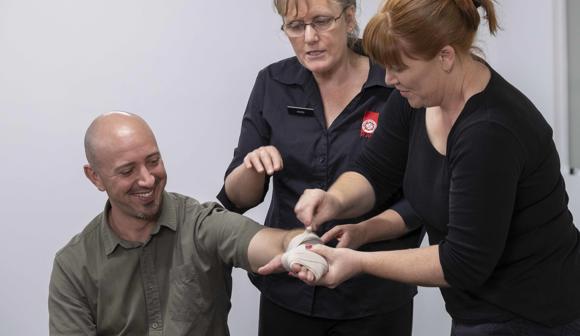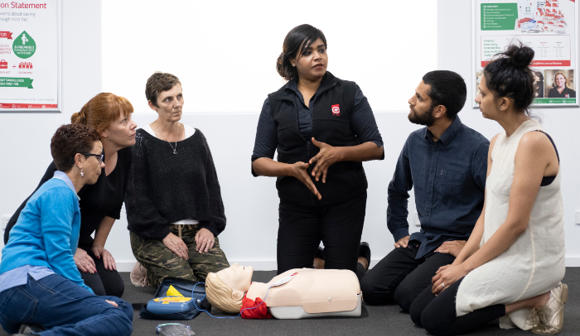Essential Wound Care for Diabetics: How to Prevent Complications and Promote Healing

World Diabetes Day, marked annually on November 14, raises awareness about diabetes and its impact on individuals and communities. One critical aspect of diabetes management that often goes overlooked is wound care. For people living with diabetes, wounds can lead to severe complications, including infections and even amputations. Understanding proper wound care is vital for reducing risks and improving quality of life. But firstly, let’s understand more about diabetes and the impact it can cause in people’s lives.
What is Diabetes?
Diabetes is a chronic disorder where insulin is either not produced, or insufficient. This creates a build-up of toxins in the blood, which can be potentially life-threatening. Hypoglycaemia and hyperglycaemia are types of medical emergencies that can occur among people with diabetes.
Around 1.7 million Australians have diabetes, this includes all types of diagnosed diabetes (1.2 million known and registered) as well as silent, undiagnosed type 2 diabetes (approximately 500,000). Currently, 300 Australians develop diabetes every day. That is one person every 5 minutes.

This condition poses a challenge due to its chronic nature, impacting individuals' daily lives and requiring careful management to prevent complications.
The Link Between Diabetes and Wound Healing
Diabetes can impact wound healing due to:

Source: Diabetes and Wound Healing: Why Is It Slower?
Key Wound Care Strategies
There are 4 quick steps that can help speed up the healing process and minimise complications:

It’s also important to remind individuals with diabetes to inspect their feet daily for cuts, blisters, or any abnormalities. Early detection is crucial for effective treatment.
Further action can be taken to promote a better quality of life when it comes to diabetes wound care.
- Control Blood Sugar Levels: Maintaining stable blood sugar levels can significantly enhance the body’s ability to heal. Regular monitoring and adhering to prescribed medications can help achieve this.
- Proper Footwear: Wearing well-fitted, supportive shoes can prevent blisters and sores. It's essential to avoid walking barefoot to protect against injuries.
- Moisturise: Keeping the skin moisturised can prevent cracking and dryness, which can lead to wounds. However, avoid putting lotion between the toes, as this can promote fungal infections.
- Wound Cleaning: If a wound occurs, it should be cleaned with mild soap and water. Avoid using alcohol or hydrogen peroxide, as these can damage tissue.
- Dressings: Use appropriate dressings to protect the wound and promote healing. Consider specialised dressings designed for diabetic wounds, which can help maintain a moist healing environment.
- Seek Professional Help: It’s important to consult healthcare professionals for any wounds that do not heal or show signs of infection, such as redness, swelling, or discharge. Diabetic wounds can quickly become emergency scenarios, so don’t hesitate to make a visit the same day as symptoms are noticed.
Education and Awareness
As part of World Diabetes Day, St John Ambulance Victoria is highlighting the importance of managing diabetes to prevent complications.
Wound care is a critical component of diabetes management that can prevent severe complications and improve quality of life. By raising awareness and providing education on proper wound care practices, we can empower individuals with diabetes to take control of their health and reduce the risk of complications. Let’s work together to ensure that everyone has access to the knowledge and resources they need to manage their diabetes effectively.
Join us this World Diabetes Day in promoting awareness and education about wound care for individuals with diabetes.

DIABETES FIRST AID: HOW TO MANAGE THE SILENT ILLNESS
Around 1.7 million Australians have diabetes.

Provide First Aid
Learn how to manage a range of common first aid scenarios.

Why Train with St John
St John Ambulance is Victoria’s leading and most preferred provider of First Aid, with a wide range of training options for you.
